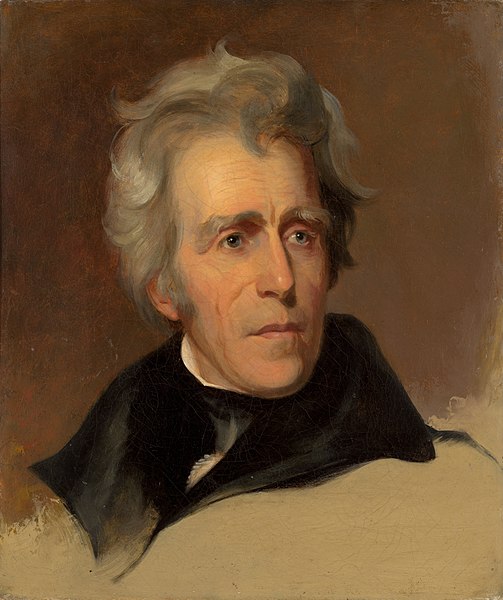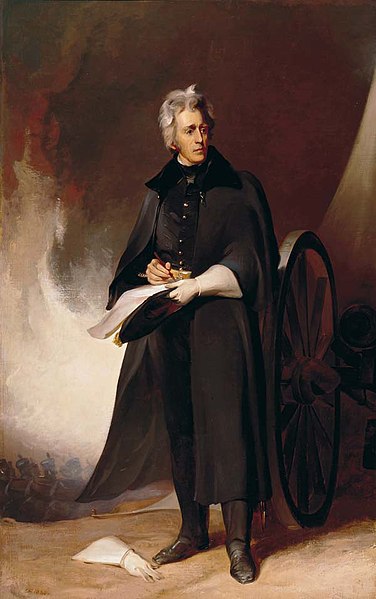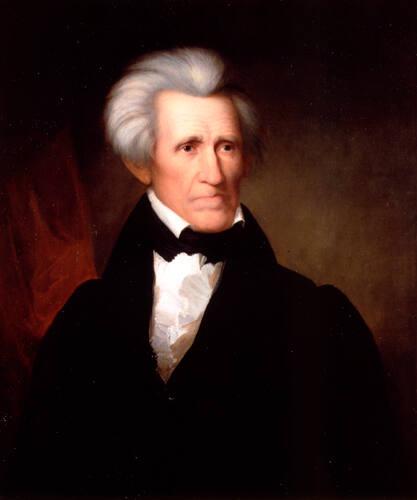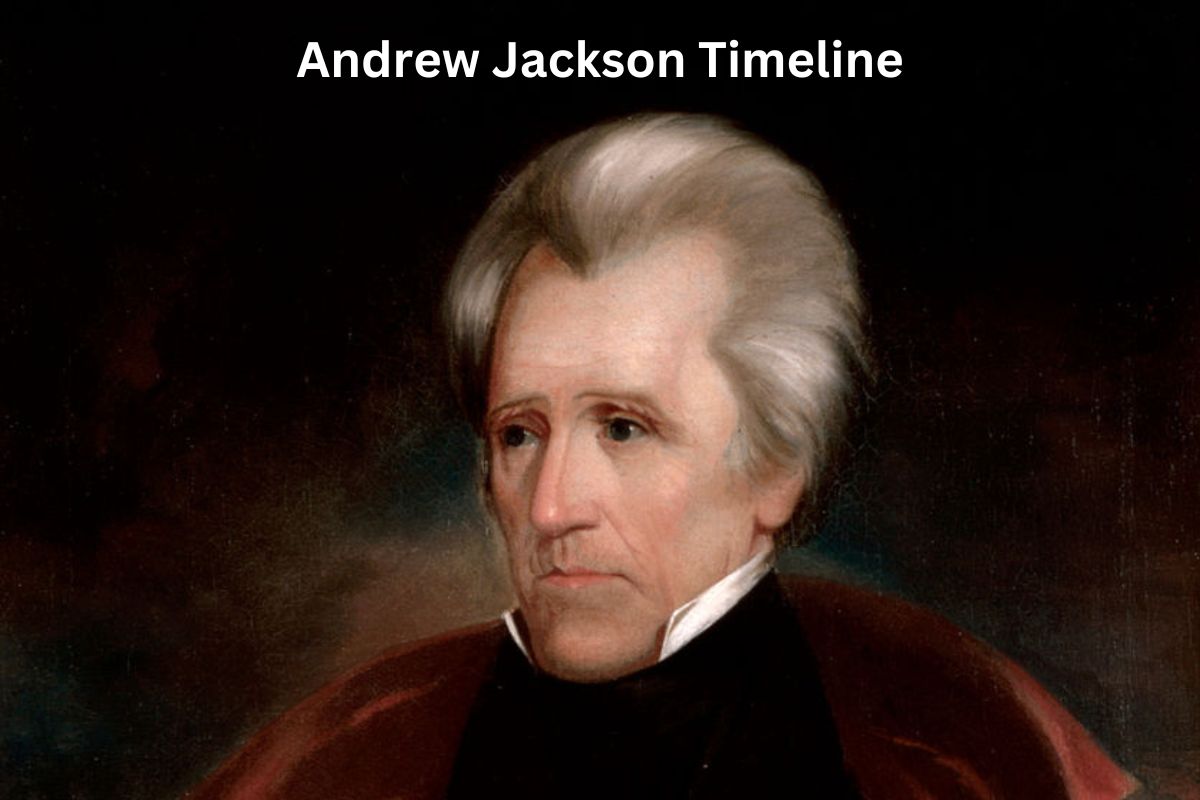Andrew Jackson, the seventh President of the United States, led a life marked by both triumphs and controversies.
Born in 1767, Jackson’s journey from a humble frontier upbringing to the highest office in the land is a remarkable tale of resilience and determination.
Throughout his career, he made significant contributions to American history, including military victories in the War of 1812, controversial policies such as the Indian Removal Act, and the expansion of executive power during his presidency.
In this brief overview, we will explore key events and milestones in the life of Andrew Jackson.
| Year | Event |
|---|---|
| 1767 | Andrew Jackson is born |
| 1780 | Captured by British troops during the Revolutionary War |
| 1781 | Brothers and mother die during and after the war |
| 1784 | Moves to Nashville, Tennessee |
| 1796 | Elected as Tennessee’s first U.S. Representative |
| 1797-1798 | Serves briefly in the U.S. Senate |
| 1801 | Appointed as major general in the Tennessee militia |
| 1812 | War of 1812 begins |
| 1814 | Victory at the Battle of Horseshoe Bend |
| 1815 | Victory at the Battle of New Orleans |
| 1823 | Elected as U.S. Senator from Tennessee |
| 1824 | First presidential campaign, loses to J.Q. Adams |
| 1828 | Elected as the 7th President of the United States |
| 1830 | Indian Removal Act signed into law |
| 1832 | Reelected for a second presidential term |
| 1835 | Survives assassination attempt |
| 1837 | Leaves office, succeeded by Martin Van Buren |
| 1845 | Andrew Jackson dies at Hermitage plantation |
Timeline of Andrew Jackson
1767: Andrew Jackson is born
Andrew Jackson was born on March 15, 1767, in the Waxhaws region, which was located on the border between North Carolina and South Carolina.
His exact birthplace is a subject of debate, as the Waxhaws were a disputed area during that time.

1780: Captured by British troops during the Revolutionary War
In 1780, during the American Revolutionary War, a 13-year-old Andrew Jackson and his older brother Robert were captured by British forces. The two brothers had joined the local militia to fight against the British, and they were taken prisoner when their unit was defeated.
Also Read: Andrew Jackson Accomplishments
While in captivity, Andrew and his brother were subjected to harsh treatment by the British soldiers. Jackson contracted smallpox during his captivity and nearly died from the disease. This experience left a lasting impact on his life and may have contributed to his toughness and resilience.
1781: Brothers and mother die during and after the war
Tragedy struck Andrew Jackson’s family during and after the Revolutionary War. In 1781, both of his brothers, Hugh and Robert, died due to illness and wounds sustained in the war.
This loss was followed by another devastating event when his mother, Elizabeth Hutchinson Jackson, died of cholera while caring for American prisoners of war in Charleston, South Carolina.
These events left young Andrew Jackson orphaned and without much family support. He would grow up with a strong sense of self-reliance and a determination to make his own way in the world.
1784: Moves to Nashville, Tennessee
In 1784, Andrew Jackson, then a teenager, moved to the frontier settlement of Nashville, which was part of the Southwest Territory and is now in the state of Tennessee. At that time, the region was still a wilderness with a relatively small population.
Also Read: Andrew Jackson Facts
Jackson settled in the area and began to establish himself in the community. He initially worked as a teacher, but he soon transitioned to studying law and began his career as a lawyer. His move to Nashville marked the start of his lifelong association with the state of Tennessee.
1796: Elected as Tennessee’s first U.S. Representative
In 1796, Tennessee was admitted to the Union as the 16th state, and it held its first congressional elections. Andrew Jackson successfully ran for the U.S. House of Representatives, becoming one of Tennessee’s first representatives in Congress.
Jackson’s entry into national politics marked the beginning of his political career, and he quickly gained a reputation for his strong opinions and fiery personality. He served in the House for only one year before being elected to the U.S. Senate.

1797-1798: Serves briefly in the U.S. Senate
In 1797, Andrew Jackson was appointed to the United States Senate to fill a vacant seat. However, he served in the Senate for less than a year, resigning in 1798 to take on a role as a judge of the Tennessee Supreme Court.
His time in the Senate was relatively brief but provided him with valuable experience in national politics.
Jackson’s appointment as a judge marked a brief departure from his political career, as he continued to pursue his legal and political ambitions in the years that followed.
1801: Appointed as major general in the Tennessee militia
In 1801, Andrew Jackson was appointed as a major general in the Tennessee militia, which he later renamed the Tennessee Volunteers. This appointment marked the beginning of his military career and his rise to prominence as a military leader.
Jackson’s military service primarily involved defending the western frontier, particularly during the threat of Native American attacks and clashes with the British in the years leading up to and during the War of 1812.
1812: War of 1812 begins
The War of 1812 broke out between the United States and Britain, and Andrew Jackson played a significant role in the conflict. He was tasked with defending the Gulf Coast region, which was particularly vulnerable to British invasion.
1814: Victory at the Battle of Horseshoe Bend
Jackson’s leadership during the war included notable victories in the Creek War, where he defeated the Creek Nation at the Battle of Horseshoe Bend in 1814, effectively ending the Creek War.

1815: Victory at the Battle of New Orlean
One of the most famous moments in Andrew Jackson’s military career came in 1815 when he led American forces to victory at the Battle of New Orleans.
This battle, which took place after the Treaty of Ghent had been signed (though not yet ratified), solidified Jackson’s reputation as a national hero.
The Battle of New Orleans was a decisive victory over a British force and is often considered one of the most significant American victories of the War of 1812.
1817: Florida Campaign
After the War of 1812, Jackson continued to be involved in military affairs. In 1817, he led a campaign into Spanish Florida (then a territory of Spain), known as the First Seminole War.
This campaign was prompted by border disputes, Native American conflicts, and the presence of fugitive slaves in Florida.
Jackson’s actions in Florida, including capturing several Spanish posts, raised tensions with the Spanish government and the United States, but they also further elevated his status as a national figure.
1823: Elected as U.S. Senator from Tennessee
In 1823, Andrew Jackson was elected as a U.S. Senator from Tennessee, marking his return to national politics. His election to the Senate reflected his growing influence and popularity in his home state.
1824: First presidential campaign, loses to J.Q. Adams
In 1824, Andrew Jackson ran for the presidency for the first time. He was one of several candidates in a crowded field that included:
- John Quincy Adams
- Henry Clay
- William Crawford
Although Jackson won the popular vote and the most electoral votes, he did not receive the majority required by the Electoral College to be declared the winner.
The election was ultimately decided by the House of Representatives, where Adams was elected president in a controversial vote. Jackson and his supporters alleged that a “corrupt bargain” had been struck between Adams and Clay to secure Adams’ victory.
1828: Elected as the 7th President of the United States
In 1828, Jackson ran for the presidency again, this time against the incumbent John Quincy Adams. The election was highly contentious and marked by intense campaigning and mudslinging from both sides.
He won the election by a decisive margin and became the seventh President of the United States. His election represented a shift in American politics, as he was seen as a champion of the common man and a symbol of the emerging democratic spirit of the age.
1830: Indian Removal Act signed into law
In 1830, during Andrew Jackson’s presidency, the Indian Removal Act was signed into law. This controversial legislation authorized the forced removal of Native American tribes from their ancestral lands in the southeastern United States to lands west of the Mississippi River.
The Indian Removal Act and the subsequent Trail of Tears resulted in the displacement and suffering of thousands of Native Americans, leading to significant hardship and loss of life.
1832: Reelected for a second presidential term
In 1832, Andrew Jackson ran for reelection as the President of the United States. He faced off against Henry Clay in a contentious campaign.
Jackson’s strong stance against the Second Bank of the United States, his support for westward expansion, and his appeal to the common people helped him secure a second term in office.
1835: Survives assassination attempt
On January 30, 1835, Andrew Jackson survived an assassination attempt in the United States Capitol when Richard Lawrence, an unemployed painter, attempted to shoot him.
Lawrence’s two pistols misfired, and Jackson, despite being in his 60s, reportedly subdued his would-be assassin with his cane.
The failed assassination attempt further solidified Jackson’s image as a resilient and tough leader.
1837: Leaves office, succeeded by Martin Van Buren
In 1837, after serving two terms as President of the United States, Andrew Jackson left office. He was succeeded by his vice president, Martin Van Buren.
Also Read: Martin Van Buren Facts
Jackson’s presidency left a lasting impact on American politics and government. His policies, including the removal of Native American tribes, his opposition to the Second Bank of the United States, and his assertion of executive power, shaped the political landscape for years to come.
1845: Andrew Jackson dies at Hermitage plantation
On June 8, 1845, Andrew Jackson passed away at his Hermitage plantation near Nashville, Tennessee. He was 78 years old at the time of his death.
Jackson’s death marked the end of a storied and influential life in American history. His legacy, both as a military hero and as a political figure, remains the subject of ongoing historical debate and analysis.
